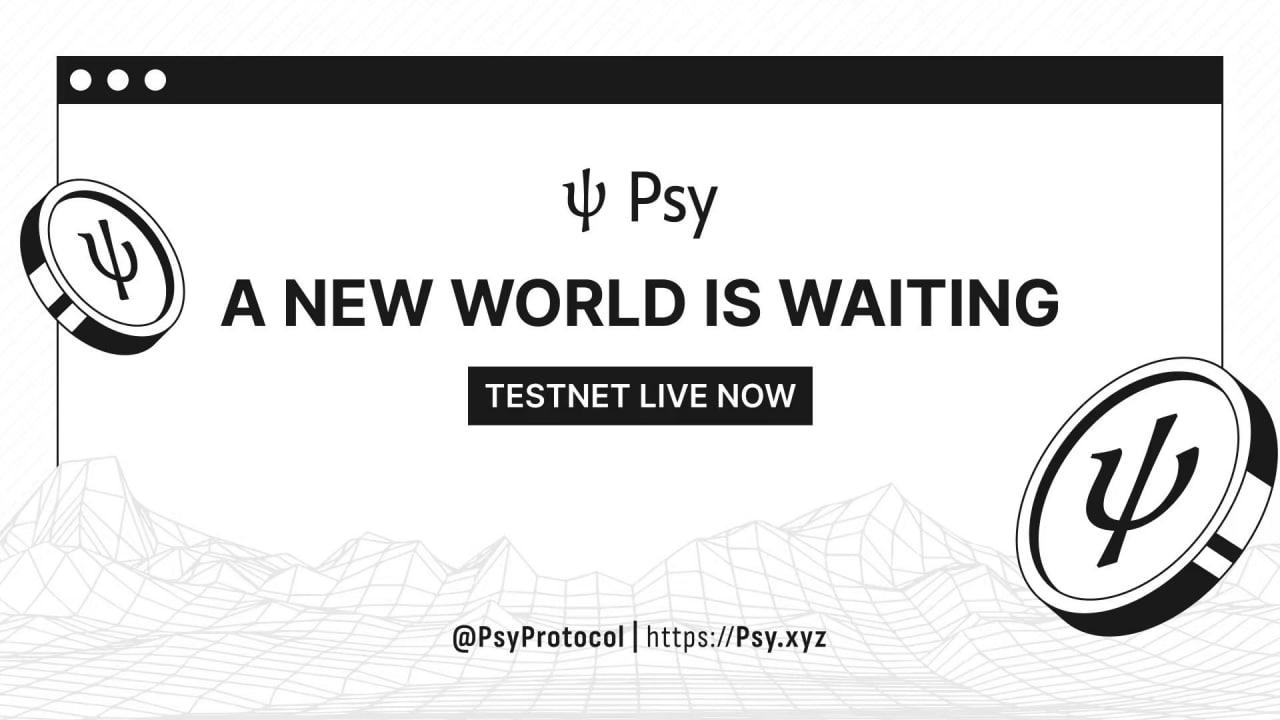
Psy Protocol's Testnet Launch: Merging Internet Scale with Bitcoin-Level Security
Psy Protocol has unveiled its public testnet, showcasing a revolutionary blockchain architecture that provides exceptional throughput and robust security, targeting high-demand applications for Web3.
[PRESS RELEASE – Hong Kong, October 2nd, 2025]
Psy makes web2 business models financially viable on web3, applicable from commerce to agentic AI.
Psy Protocol (previously known as QED Protocol) has launched its public testnet, featuring a blockchain framework intended to deliver remarkable throughput along with Bitcoin-level security. The launch has shown internal benchmarks reflecting a capacity of millions of transactions per second (TPS), made possible through client-side zero-knowledge proofs and a horizontally-scalable state architecture. Notably, Psy’s system can accommodate a virtually unlimited amount of transactions and time frames that improve logarithmically as more users join the network.
The protocol is supported by reputable investors and collaborators such as Blockchain Capital, Arrington Capital, UTXO, Anagram, Draper Dragon, CoinSummer, Amber Group, Paper Ventures, Protagonist, LBank Labs, Valhalla Capital, StarkWare, Edessa Capital, along with mining groups like F2Pool and ViaBTC Capital.
“Psy’s architecture addresses the fundamental obstacle to mainstream adoption of web3 by overcoming the scalability and security challenges that have hindered decentralized apps,” Aleks Larsen, General Partner at Blockchain Capital, stated. “This allows recognized high-concurrency models in the web2 space, ranging from commerce to AI, to operate on a fully decentralized base with Bitcoin-grade security.”
Enhancing Internet-Scale Throughput
The performance of Psy is a solution to one of blockchain’s major issues: its struggle to support high-demand apps characteristic of today’s internet environment. Fully on-chain DeFi, automated payments, and decentralized alternatives to platforms like Amazon or eBay have remained largely theoretical as existing blockchains lack the capacity to handle necessary transaction volumes.
Traditional blockchain limitations include the fact that every full node must validate each transaction, enhancing security but drastically curtailing throughput. For instance, Ethereum manages approximately 60 TPS, while even leading proof-of-stake networks like Solana peak at about 1,000 TPS. Psy’s state model, PARTH, circumvents this issue completely.
By utilizing client-side computing, Psy significantly lightens the load on the network. Users create zero-knowledge proofs directly on their devices instead of asking every node to validate all transactions, making verification significantly faster. The network allows these proofs to be aggregated in parallel via recursive zero-knowledge proofs, resulting in a single, concise block proof that authenticates millions of transactions in mere seconds.
Importantly, the PARTH framework allows for block generation times that improve with user engagement. In test scenarios with one million users, each performing ten transactions, Psy managed to process 10 million transactions in approximately 10 seconds, demonstrating throughput that surpassed one million TPS.
Facilitating the Next Stage of Web3
The technology stack of Psy positions it as a serious contender in facilitating web3 business models for intensive use cases, including fully on-chain DeFi and autonomous payments. With accelerated transaction velocities, scalable design, and built-in data privacy, the testnet exemplifies how Psy accomplishes scale while ensuring the security and decentralization principles that built Bitcoin’s success.
This capability enables blockchain applications to rival centralized systems while restoring data ownership and control to users rather than allowing it to remain with tech monopolies.
The public testnet is operational from today, offering developers and users a firsthand experience of Psy’s capabilities, with plans for mainnet deployment later this year.
Psy’s Proof-of-Useful-Work Approach
Differing from most high-capacity blockchains adopting proof-of-stake consensus mechanisms, Psy relies on principles of proof-of-work, similar to Bitcoin’s method.
Proof-of-stake systems typically concentrate power among validators with substantial token holdings, permitting practices like MEV that can extract value. Their security is reliant on the tokens they issue, creating circular dependencies that heighten systemic risks.
Psy mitigates the traditional energy inefficiency related to proof-of-work by framing mining as “useful work,” involving the generation and aggregation of zero-knowledge proofs which directly secure transactions. This focus transitions mining from a competition of raw hashing power to a collaborative value creation process, enhancing the network through productive contributions by miners.
“Web3 commerce and the agentic economy haven’t scaled because users had to pick between convenience and decentralization,” highlighted Carter Feldman, founder and CEO of Psy Protocol. “Psy eliminates this false choice, equipping developers with the tools required to create swift, secure, and scalable platforms that provide seamless experiences — running entirely on-chain.”
Official website: Psy Protocol
Official X (Twitter): PsyProtocol
Psychonaut Incubation Program: Psychonaut
About Psy Protocol
Psy Protocol serves as a Proof-of-Useful-Work smart contract platform, merging the neutrality and protection of proof-of-work with the scalability and speed that next-gen architectures guarantee. By shifting transaction validation to users and aggregating zero-knowledge proofs on-chain, Psy ensures internet-scale throughput, low costs, and open access without sacrificing the enhanced security that proof-of-work provides. Psy aims to empower developers to construct hyper-scalable web3 applications, aspiring to create the next era of a decentralized internet.


